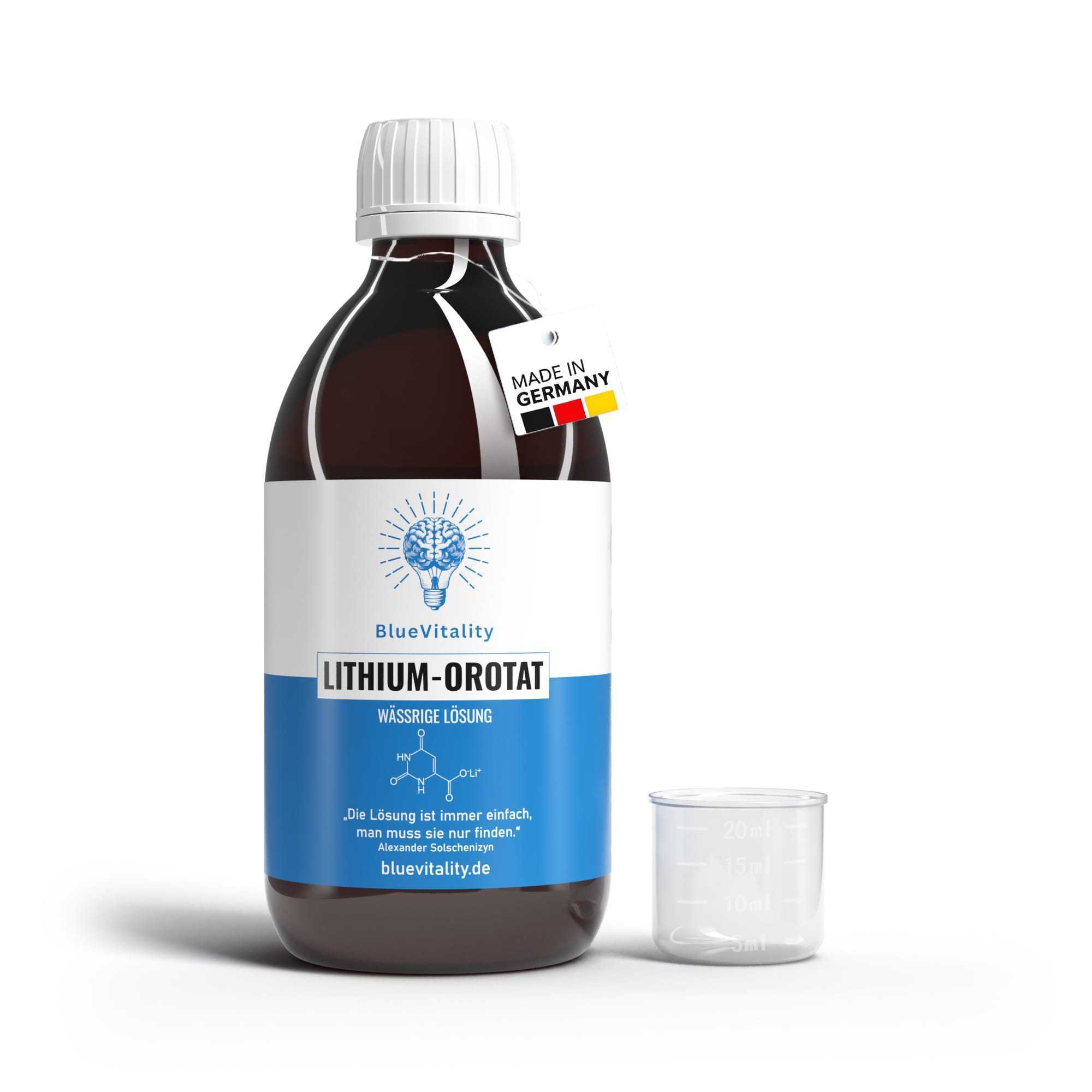Lithium is an essential trace element that plays a key role in brain health and emotional balance. While lithium is primarily used in conventional medicine as lithium carbonate or lithium malate to treat bipolar disorder, lithium orotate is gaining increasing attention as a dietary supplement. It offers a potentially gentle and effective alternative for people who want to benefit from the stabilizing properties of lithium without the side effects of high pharmacological dosages. In this article, we take a closer look at lithium orotate, its effects, and its potential applications.
The science behind lithium orotate: What makes it special?
Lithium orotate is a compound of lithium and orotic acid. This particular form is particularly well absorbed by the body, meaning even small amounts are sufficient to produce positive effects. Unlike lithium carbonate, which is often prescribed in high doses to achieve therapeutic effects, even microdoses of lithium orotate can be effective.
A key advantage is that lithium orotate reaches the brain more efficiently. Studies suggest that it crosses the blood-brain barrier more easily, allowing it to exert a more direct effect on the central nervous system. This allows for lower dosages with fewer side effects, making it an attractive option for long-term use.
Lithium orotate and its potential benefits
Lithium orotate is increasingly viewed as a natural remedy for supporting mental health and neurological function. Key potential benefits include:
1. Mood stabilization and stress reduction
Lithium is known for its mood-stabilizing properties. Studies suggest that even low doses of lithium orotate can help mitigate mood swings and improve stress tolerance. This may be particularly important for people with mild anxiety or depressive moods.
2. Neuroprotective effects
Neurological diseases such as Alzheimer's, Parkinson's, and other forms of dementia are often associated with inflammatory processes and oxidative stress. Lithium has shown neuroprotective properties in studies, as it can promote the growth of new nerve cells and slow the degradation of existing neurons. Lithium orotate could be a complementary measure to preserve cognitive function.
3. Supports brain performance and cognitive functions
Some studies suggest that lithium orotate can help improve concentration and support memory. It may play a role in the prevention of cognitive impairment, making it of interest to people with high mental demands.
4. Possible positive effects on sleep and inner peace
Low-dose lithium has been associated with improved sleep quality. People suffering from mild sleep disturbances or restlessness may benefit from lithium orotate, as it can calm the central nervous system.
Safety and dosage
A key advantage of lithium orotate over lithium carbonate is its lower toxicity. While lithium in high pharmacological doses requires regular blood tests, lithium orotate is considered safe in small amounts. The typical dosage is between 2.5 mg and 10 mg of elemental lithium per day. However, its use should be discussed with a physician or alternative practitioner, especially in cases of concomitant medication or existing medical conditions.
Conclusion: Lithium orotate as a gentle alternative for well-being
Lithium orotate offers an interesting alternative to high-dose lithium supplements and could be a valuable tool for supporting mental and cognitive health. Its good bioavailability and low side effect profile could make it particularly suitable for people seeking natural support for their emotional balance and brain function. Further scientific studies are needed to explore its full potential, but the findings so far are promising.





